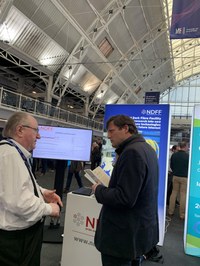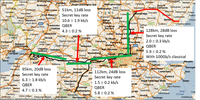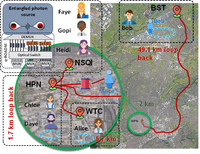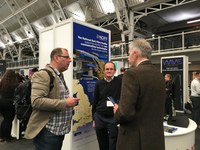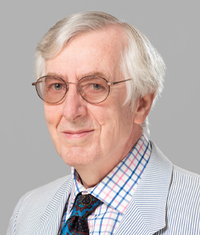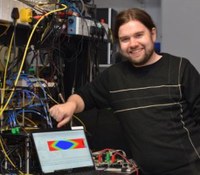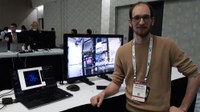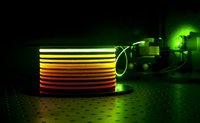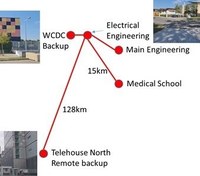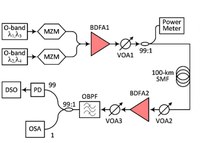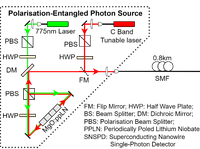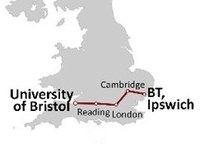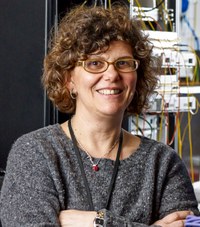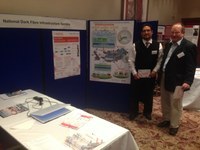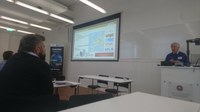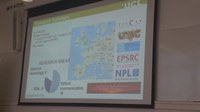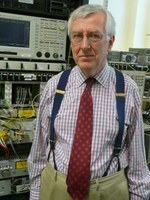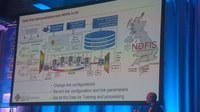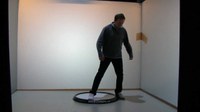News
Site News
Case study: End-to-End data transmission on the UK Quantum Network, secured by Quantum key distribution and Post-Quantum Cryptography
Cambridge and Bristol were connected with a communication network using the NDFF which secured data from attack by quantum computers by implementing quantum key distribution and post quantum cryptography
Case study: Optical Link Performance Monitoring Experiments
A GNPy-based digital twin and unified monitoring platform were developed, combining AI, telemetry, and real-time data processing to achieve highly accurate QoT predictions and revolutionize dynamic optical network management, validated through a 493-km field-trial testbed.
Case study: Low-Cost Digital Optical Fibre Time-of-Flight Compensation for Radio Antenna Synchronization in Future 6G Networks
Rinicom Ltd and University College London's ICCS demonstrated a new low-cost method for synchronizing radio antennas with trillionth-of-a-second precision using optical fiber in the National Dark Fibre Facility (NDFF)
NDFF receives Core Equipment Award 2024
National Dark Fibre Facility has been successful in securing a further round of grant funding for equipment enhancement. They will increase the technical capabilities available to Users and support wider research community and diverse applications.
NDFF exhibits at the UK National Quantum Technologies Showcase 2024
NDFF exhibits at the UK National Quantum Technologies Showcase 2024 on Friday 8th Nov, showing its support for Quantum Communications Hub/hybrid QKD/Quantum alarm projects.
Case study: UK Quantum Network
The UK Quantum Network has successfully connected Cambridge with Bristol with secure key rates of at least 1kb/s over links with optical losses of up to 28dB.
Case study: Dynamically Switched Quantum Network Supporting Co-existence of Entanglement, Prepare-and-measure QKD, and Classical Channels
A quantum network supporting entanglement distribution, the prepare-and-measure QKD, the high-speed classical communication and their co-existence in a deployed fibre network.
Case study: AI-Engine Driven Cross-Domain Orchestration implementation in Dynamic Optical Networks
AI-driven cross-domain orchestrator has been implemented in field trial testbed based on core and metro deployed optical network 500km NDFF and 5G city Bristol metro network.
NDFF attends the UK National Quantum Technologies Showcase 2023
NDFF exhibits at the UK National Quantum Technologies Showcase 2023 on 2nd Nov, to showcase its support for Quantum Communications Hub/hybrid QKD/Quantum alarm, providing dark fibre testbed linking Cambridge and Bristol.
Professor Alwyn Seeds receives the IEEE Photonics Society Engineering Achievement Award
Congratulations to Professor Alwyn Seeds on being awarded the IEEE Photonics Society Engineering Achievement Award for pioneering developments in microwave photonic devices and systems, leading to successful commercialization of wireless-over-fiber for 5G+ cellular communication.
NDFF receives second equipment enhancement grant
National Dark Fibre Facility has been successful in securing a further round of grant funding for equipment enhancement. The equipment included in this proposal supports quantum-secured networking, sensing and experiments with novel spectrum usage, and intelligent network management.
Dr Kari Clark presents top-scoring paper at OFC conference 2023
National Dark Fibre Facility optical network testbed used to demonstrate picosecond precision clock synchronization. This experimental work was presented as a top-scoring research paper at the Optical Fiber Communications Conference (OFC) in 2023.
Real-time demonstration of adaptive constellation shaping for intelligent optical networks on NDFF
Constellation shaping was dynamically updated based on the measured accumulated noise in the system. The OFC attendees can choose the fibre links length (from 40km to 450km) and see real-time updates of constellation diagrams adapted to the selected route.
CASE STUDY: Dynamic optical network End-to-End QoT prediction
QoT (Quality of Transmission) prediction was deployed over a 986-km field trial using NDFF. Two cascaded ANN-based link penalty models in a dynamic optical network were developed for the QoT prediction and the prediction precision is up to 99.96% for R-square score.
CASE STUDY: Spectral power profile optimisation of WDM transmission system by remote link modelling
Machine-learning experts from the Technical University of Denmark (DTU) partnered with the NDFF team at the University of Southampton for an experiment that optimised a WDM fibre network implemented on NDFF, using a model of an erbium-doped fibre amplifier obtained through training performed from a single access point.
EPSRC grant enables building of new Open Experimental Facility at University of Southampton
A new grant from the Engineering and Physical Sciences Research Council (EPSRC) will facilitate the building of a new open experimental facility at the University of Southampton.
Case study: Long-distance Quantum Key Distribution secured multi-homed data backup
NDFF demonstrate a network that uses Quantum Key Distribution (QKD) to enable secure encrypted data transmission on a multi-site network.
Case study: Wideband optical transmission
Transmission systems are rapidly approaching maximum capacity. Expansion of the usable bandwidth of optical fibres offers a direct route to alleviating this challenge. Research by NDFF at the University of Southampton has made significant progress in this area in recent years.
Case study: Towards a quantum network within deployed telecommunications fibre-optic infrastructure
University of Bristol demonstrate a scalable, full mesh, polarisation entanglement-based 3-user quantum network over ~50 km metropolitan NDFF fibre link.
Case study: Field trial of multi-layer slicing over disaggregated optical networks enabling end-to-end crowd-sourced video streaming
Optical networks face an increasing need to support new services with fast-response, real-time and on-demand requirements. Researchers at University of Bristol are experimenting with Crowdsourced Live Video Streaming (CLVS) over the NDFF optical network testbed to support the high-capacity and low-latency requirements for the large amount of traffic generated.
New Dark Fibre Communications Research Service to power the future internet
Software defined optical network funded by EPSRC and Janet, part of the Jisc group, will enable researchers to create vital underpinning communications technologies
Showcasing NDFF at Mid-Range EPSRC Facilities Event
On 24th February, we showcased NDFF, the newest EPSRC mid-range facility, at a special event held in Coventry
Machine-Learning-assisted Optical Network Planning on NDFF
Network researchers used NDFF for Machine-Learning-assisted and SDN-based Optical Network Planning with Network-Scale Monitoring Database
NDFF Highlights by Quantum Communications Hub
The 2nd year report of Quantum Communications Hub highlights the contributions of NDFF
Context Aware Network project approved by EPSRC
CASMS proposes to create an interconnected network of Virtual Reality (VR) test-beds located at Liverpool University, UCL and, subject to confirmation, Bristol, in order to develop an integrated experimental platform that provides remote VR experimentation. The existing NDFF optical infrastructure will be used to interconnect UCL, Bristol and Telehouse at rates up to 100 Gb/s, while the Liverpool test-bed will be linked in via a 10GE Janet Lightpath terminated at Telehouse
Converged Networks project approved by EPSRC
COALESCE is a newly funded research project about interconnected testbeds for converged optical and wireless networks. It will create a physical network to interconnect existing test-beds at the different universities, using NDFIS




